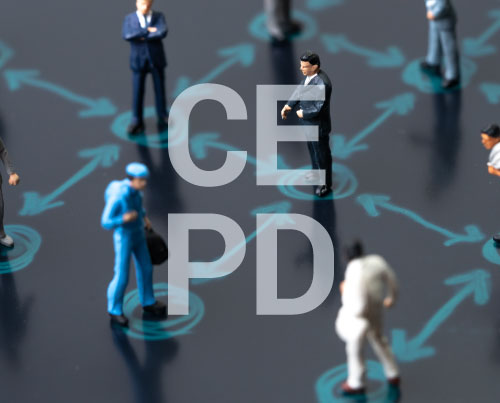Blog Post Heading
Blog Post Content
By Joe Peters
Editor, MindEdge Learning
Recently I observed two masked grocery-store patrons staring proverbial daggers at each other after they accidentally intruded on each other’s space.
And it struck me that if we showed just a modicum of the same umbrage and outrage online, we might be able to quash a number of cybersecurity threats, as well.
While some of you might bristle at the comparison of a deadly biological virus to its digital namesakes, I would urge you not to underestimate either the financial or human toll of malware. For example, in 2018 different variants of ransomware shut down the networks of many healthcare providers, delaying patients’ access to doctors and medicine. As we become more reliant on software to manage everything from coffee makers to air traffic control, we also become more vulnerable to malware and cyberattacks.
From the Titanic to those unfortunate hoverboards with the exploding batteries, our capacity to innovate seems to carry with it a commensurate rise in our arrogance about the possibility of failure. Behind every mouse-click or phone-tap is a risk calculation, not unlike shaking someone’s hand or touching that grocery item that we have now become so adept at sanitizing once we’ve brought it home.
While the social and political debates can rage—have we gone too far, or not far enough, in our response to the coronavirus?—those of us who deal with the digital variants of viruses find an incongruity about this mass awakening to one type of threat, and the continued ignorance of another.
The hard truth may be that human beings have a very short attention span. For example: despite better than two decades of experience working in this industry, I cannot, in fact, tell you what “cyber” security is. I know when I started, we called it “information security,” and even then I thought that was a bit too much modification. Security, like quality or health, is an all-encompassing activity. But the tools and pace of our society encourage a focus on cool-sounding trees more than the generically named forest. Our solutions tend to be measured in products—from face coverings to anti-virus software—rather than behavior.
Well before COVID-19 entered the lexicon, there were certain individuals that my security colleagues and I labeled “hand sneezers.” These are the folks who do the digital equivalent of repeatedly sneezing in their hand and then run around giving everyone high-fives or slapping them on their backs. They are the people who get forwarded a chain letter or attachment and follow the directive to “forward this to everyone you know!” without reservation. The hand-sneezers have also taken over social media, reposting or sharing without considering either the source or the destination.
Last month, for example, the Better Business Bureau cautioned social-media denizens about the “Support the Class of 2020” movement, in which people posted images from their high school or college yearbooks. I doubt whether any member of the Class of the 2020 really cared what we all looked like in our big-hair or wide-lapel days—but, as the BBB pointed out, such images can prove useful to cyberstalkers or identity thieves.
This doesn’t mean that we need to wall ourselves inside a digital fortress, any more than managing through the current pandemic means that we need to seal ourselves hermetically inside our houses. Just as we can venture safely outside and find social interaction at a distance, we can use our modern tools and follow social-media trends. While some, such as my fellow grocery store patrons, might go to the extreme of viewing everyone else as a threat to their personal space and safety, a more modest stance may be a recognition that being a citizen—in either human or digital form—involves a certain amount of risk.
Prior to 12 weeks ago, we might not have realized the risk in that hug or handshake, but it was always there and it always will be going forward. Time will tell how long it will take us to see past such jeopardy for the reward of genuine contact, but it would be a colossal shame if the result of this pandemic is a chilling of our human behavior, while our digital behavior continues on at a boiling point.
For a complete listing of MindEdge’s course offerings on cyber security and CISSP®, click here.
Copyright © 2020 MindEdge, Inc.
